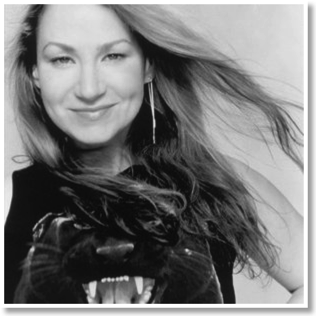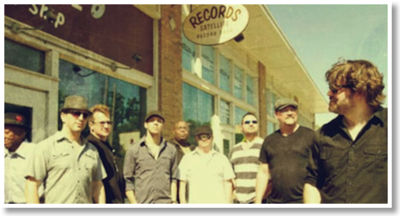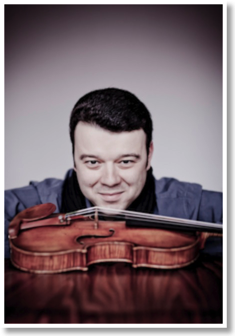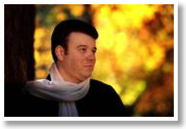September 2013
Joan Osborne
Joan Osborne
One World Theatre
Austin, Texas
Located along the scenic Bee Caves Road, One World Theatre, outwardly, hardly looks like a typical concert venue. The Tuscan-style villa was nearly filled for the night's performing artist, the multi-platinum selling recording artist and seven-time Grammy nominee Joan Osborne.
 Osborne appeared on stage and opened with the somber "This is Where We Start," accompanied by pianist Keith Cotton. After her song, she thanked Austin for having her, and commented that although she typically performs with a full band, she'd only brought a pianist that night, a decision inspired by her recent experience with a radio fundraiser that requested only piano and voice samples. Osborne then swung into "St. Teresa" as she donned a guitar and played it both melodically and percussively. She introduced her next song as an unreleased track on a work-in-progress album tentatively titled Love and Hate, describing the following song, "Work on Me," as "seductive." The audience reacted very warmly, wildly applauding her performance; Osborne responded to the applause, saying, "So, Austin likes the sexy ones; note to self," and the crowd laughed.
Osborne appeared on stage and opened with the somber "This is Where We Start," accompanied by pianist Keith Cotton. After her song, she thanked Austin for having her, and commented that although she typically performs with a full band, she'd only brought a pianist that night, a decision inspired by her recent experience with a radio fundraiser that requested only piano and voice samples. Osborne then swung into "St. Teresa" as she donned a guitar and played it both melodically and percussively. She introduced her next song as an unreleased track on a work-in-progress album tentatively titled Love and Hate, describing the following song, "Work on Me," as "seductive." The audience reacted very warmly, wildly applauding her performance; Osborne responded to the applause, saying, "So, Austin likes the sexy ones; note to self," and the crowd laughed.
She conversationally talked about her experience as the "chick singer with the Grateful Dead," and how she always prayed that they would put "Brokedown Palace" on the set list; they never did, but she now has the liberty to perform it on her own, which she did. Afterwards, she went straight into her upbeat song "Spider Web," which got the audience clapping and stomping along to the beat.
As Osborne took up her guitar again, she brought up her experiences back in New York, where she got her start singing in blues clubs. Since then, Osborne said, she had been trying to avoid covers in order to write more of her own songs, but now, she says, "I just don't care, I can sing whatever I feel like." She then covered a Van Morrison song called "Tupelo Honey."
Osborne shared a little about her trip to the Grammy's for her album Bring It On Home and went on to sing "I Want to be Loved" and "Champagne and Wine" from that album. The audience cheered for more blues and she sang Ike and Tina Turner's "Game of Love."
She told the story about how she got her start in New York blues clubs: her friend dared her to sing a certain song on stage. The pianist thought she was pretty good and invited her to their open mic night, which she attended; then she started visiting other clubs' open mic nights. She met many other artists and bands, and eventually she put together her own band, and the rest is history. And it all was, as she puts it, "at the fault of this song." That song, which she's never recorded, is Billie Holiday's "God Bless the Child."
Thanking the crowd again, Osborne ended her set with "One of us" and "Only You Know and I Know."
A resounding standing ovation was seen and felt throughout the venue, as Osborne and Cotton both returned to the stage to play Bob Dylan's "Make You Feel My Love," a song that Osborne described as a "prayer to send you all out into the night with."
by Olivia Lin
One World Theatre
Austin, Texas
Located along the scenic Bee Caves Road, One World Theatre, outwardly, hardly looks like a typical concert venue. The Tuscan-style villa was nearly filled for the night's performing artist, the multi-platinum selling recording artist and seven-time Grammy nominee Joan Osborne.

She conversationally talked about her experience as the "chick singer with the Grateful Dead," and how she always prayed that they would put "Brokedown Palace" on the set list; they never did, but she now has the liberty to perform it on her own, which she did. Afterwards, she went straight into her upbeat song "Spider Web," which got the audience clapping and stomping along to the beat.
As Osborne took up her guitar again, she brought up her experiences back in New York, where she got her start singing in blues clubs. Since then, Osborne said, she had been trying to avoid covers in order to write more of her own songs, but now, she says, "I just don't care, I can sing whatever I feel like." She then covered a Van Morrison song called "Tupelo Honey."
Osborne shared a little about her trip to the Grammy's for her album Bring It On Home and went on to sing "I Want to be Loved" and "Champagne and Wine" from that album. The audience cheered for more blues and she sang Ike and Tina Turner's "Game of Love."
She told the story about how she got her start in New York blues clubs: her friend dared her to sing a certain song on stage. The pianist thought she was pretty good and invited her to their open mic night, which she attended; then she started visiting other clubs' open mic nights. She met many other artists and bands, and eventually she put together her own band, and the rest is history. And it all was, as she puts it, "at the fault of this song." That song, which she's never recorded, is Billie Holiday's "God Bless the Child."
Thanking the crowd again, Osborne ended her set with "One of us" and "Only You Know and I Know."
A resounding standing ovation was seen and felt throughout the venue, as Osborne and Cotton both returned to the stage to play Bob Dylan's "Make You Feel My Love," a song that Osborne described as a "prayer to send you all out into the night with."
by Olivia Lin
Mingo Fishtrap

Sam’s Burger Joint
San Antonio, Texas
Acclaimed Austin, based band Mingo Fishtrap is known for high-octane performances fueled by gritty vocals, animated horns, and jumping funky soul-rock rhythms with dashes of New Orleans jazz. Fronted by Roger Blevins, Jr. (lead singer and guitarist), the band comes across as a molding of John Fogerty, Blood, Sweat & Tears, and The Neville Brothers concoction, bringing the bayou sound right into their own Texas backyard.
Despite the small venue, the syncopated grooves, brassy workouts that reminsenent of Stax and Muscle Shoals, searing blues guitar, and relentless drive seemed to blare out over a wide circumference, epitomized by their rollicking blues-funk-rock staple “Do What Ya Wanna Do” and interspersion of the all-time R&B/Crescent City favorite “Jockomo”/“Iko Iko.” But even with such energetic delivery, songs such as the soul-infused “Things Ain’t What They Was Before” tell a classic message updated into a present setting. zwith a Mardi Gras sensibility and Louisiana musical flair, the performers remained nicely dressed—even with Blevins, Jr., in his beret, collared shirt, denims, and boots, at times dancing , at other times cracking jokes about touring.
Over 15 years and different lineups, Mingo Fishtrap continue to keep the Louisiana sound alive through releasing acknowledged output such as Yesterday (winner of Austin Music Awards) and their zest-filled performances such as tonight. “Don’t worry about what anybody thinks,” Blevins, Jr., said. “Just do your thing.”
by Jeff Boyce
Vadim Gluzman and the
Austin Symphony Orchestra

Dell Hall
Austin, Texas
Audience members poured into Dell Hall for the highly anticipated Tchaikovsky Violin Concerto and watched as acclaimed Ukrainian violinist, Vadim Gluzman, strode briskly onto the stage with a unique violin in hand.
Gluzman’s violin dates back to the time of J.S. Bach’s life. The 1690 “ex-Leopold Auer” Stradivari seemed a celebrity unto itself. It was the same instrument on which Tchaikovsky heard his piece played.
The first half of the program featured an old favorite as well as a world premiere. Bernstein’s Candide delighted the crowd with its familiar, exuberant character, while Edward Burlingame Hill’s Fourth Symphony encountered its first ever audience.
Microphones littered the stage as Hill’s piece was recorded for the very first time. Fortunately, no cell phones interrupted.
The crowd grew noticeably after intermission as eager listeners queued up for the climax of the show.
Tchaikovsky’s famed orchestral opening surrendered itself to Gluzman’s commanding solo. The violin and musician sculpted the silence into a potent statement of power.
Gluzman maintained infectious conviction through the most grueling of passages. He remained grounded—emotionally and physically—as he performed.

His unaffected presence combined with stunning virtuosity incited an eruption of applause the instant the first movement ended.
The applause lasted so long that Gluzman was forced to gesture for the audience to sit down, mouthing that there was still more to come: two additional movements. His amusing response persuaded the crowd to settle, and the orchestra finally began the second movement.
Following the close of the third and final movement, the audience rose again without hesitation. The thunderous applause called for an encore, which Gluzman granted graciously with a performance of Bach’s Gavotte en Rondeau from the Third Violin Partita. The encore was met with yet another standing ovation.
Maestro Peter Bay rounded out the evening with Rimsky-Korsakov’s Capriccio espagnol, a joyful end to an unforgettable evening for the audience.
Though Gluzman’s virtuosity thrilled the crowd, his technique was merely a vehicle for something greater: a rich and truthful portrayal of the human spirit.
by Jacqueline Perrin
Austin Piano Festival
Austin Piano Festival
University United Methodist
Austin, Texas
Classical music enthusiasts flocked to the University United Methodist Church recently to witness the grand finale of the First Annual Austin Piano Festival.
The Festival's closing celebration featured diverse and satisfying performances. Young talents, such as Jeana Chun (1st prize, Div. I) and Simone Feng (2nd Prize, Div. II), shared the stage with established concert pianists, while seasoned performers shared a single keyboard with two—even three—other pianists at a time.
The extravaganza marked the end of a fruitful two-week run filled with master classes and solo recitals, complete with a young artist competition.
Festival judges handpicked skilled youths to play in the closing celebration. Winners of the competition did not disappoint. These talented youths conquered demanding works such as Liszt's Waldesrauschen, Glinka's The Lark (transcribed by Balikirev) and Beethoven's famous “Waldstein” Sonata.
Not to be outdone, the founders of the festival, Matt McLaughlin, Michael Schneider and Johan Botes, performed in several pianistic ensembles—some rather unconventional.
The final piece of the program aptly reflected the cheerful communal spirit of the gala. Lavignac’s theatrical Galop-Marche calls for eight hands on a single piano. Manic, harried sections comically transition into melodramatic, romantic ones.
The founders, joined by pianist Kris Pineda, embraced the tongue-in-cheek absurdity of the piece—literally. A few of the lyrical sections forced the musicians to put their arms around their colleagues’ backs to make room on the cramped keyboard. The audience laughed as the founders bobbed their heads in unison.
Plans are currently underway to continue the Austin Piano Festival for next year. Given the positive response from young and professional pianists alike, the founders are looking forward to bigger and better festivals to come.
by Jacqueline Perrin
Editor’s note: At the time of this review, Ms. Perrin was an educational intern/volunteer for the Austin Chamber Music Center.
University United Methodist
Austin, Texas
Classical music enthusiasts flocked to the University United Methodist Church recently to witness the grand finale of the First Annual Austin Piano Festival.
The Festival's closing celebration featured diverse and satisfying performances. Young talents, such as Jeana Chun (1st prize, Div. I) and Simone Feng (2nd Prize, Div. II), shared the stage with established concert pianists, while seasoned performers shared a single keyboard with two—even three—other pianists at a time.
The extravaganza marked the end of a fruitful two-week run filled with master classes and solo recitals, complete with a young artist competition.
Festival judges handpicked skilled youths to play in the closing celebration. Winners of the competition did not disappoint. These talented youths conquered demanding works such as Liszt's Waldesrauschen, Glinka's The Lark (transcribed by Balikirev) and Beethoven's famous “Waldstein” Sonata.
Not to be outdone, the founders of the festival, Matt McLaughlin, Michael Schneider and Johan Botes, performed in several pianistic ensembles—some rather unconventional.
The final piece of the program aptly reflected the cheerful communal spirit of the gala. Lavignac’s theatrical Galop-Marche calls for eight hands on a single piano. Manic, harried sections comically transition into melodramatic, romantic ones.
The founders, joined by pianist Kris Pineda, embraced the tongue-in-cheek absurdity of the piece—literally. A few of the lyrical sections forced the musicians to put their arms around their colleagues’ backs to make room on the cramped keyboard. The audience laughed as the founders bobbed their heads in unison.
Plans are currently underway to continue the Austin Piano Festival for next year. Given the positive response from young and professional pianists alike, the founders are looking forward to bigger and better festivals to come.
by Jacqueline Perrin
Editor’s note: At the time of this review, Ms. Perrin was an educational intern/volunteer for the Austin Chamber Music Center.


